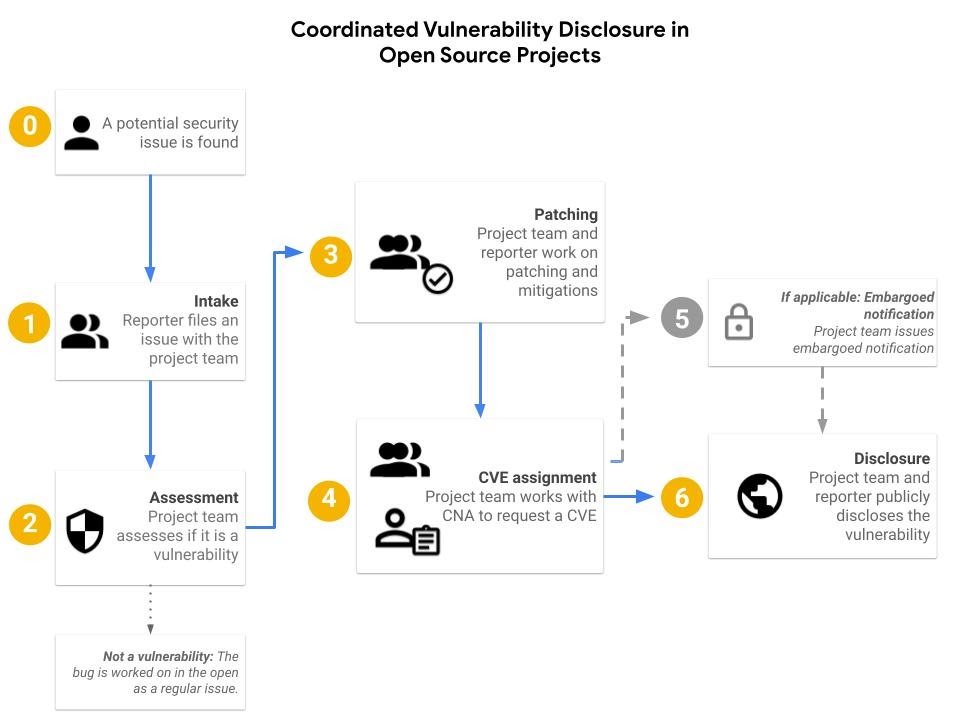Google doesn’t restrict its open source work to one team, instead we teach any and all Googlers about open source: how to release, how to contribute, how to use, and, in general, how to be a good open source citizen. This approach scales well, and gives people the knowledge to be lifelong open source community members. This includes sharing knowledge about open source security, a topic that isn’t new, but is finally getting the industry attention it deserves.
The intimidating blank slate and a lack of time for contributors to develop policies means many open source projects have no documented vulnerability reporting information, much less a plan for how to handle and disclose a reported vulnerability. We recently updated our guidance for coordinated vulnerability disclosure in open source projects that come out of Google and have published it in hopes that other projects will find this helpful for their project security practices.
The new guide has three sections:
- Setting up your vulnerability management “infrastructure”: The work you’ll want to do before an issue is reported.
- The vulnerability response process: Includes a runbook for when your project receives an issue.
- Templates: From SECURITY.MD to a public disclosure outline, all the communication pieces you need to handle an issue.
Vulnerability disclosure is part of Fix in the Know, Prevent, Fix framework we proposed recently for open source vulnerability management. In today’s industry, with all of our supply chain dependencies, improving open source project security in even one project can have a multiplying effect. Vulnerability disclosure is a key aspect of that overall security posture. Our hope is that projects will take this guide, remix and adapt to their projects, and share their changes with others so we can collectively increase our open source security.
